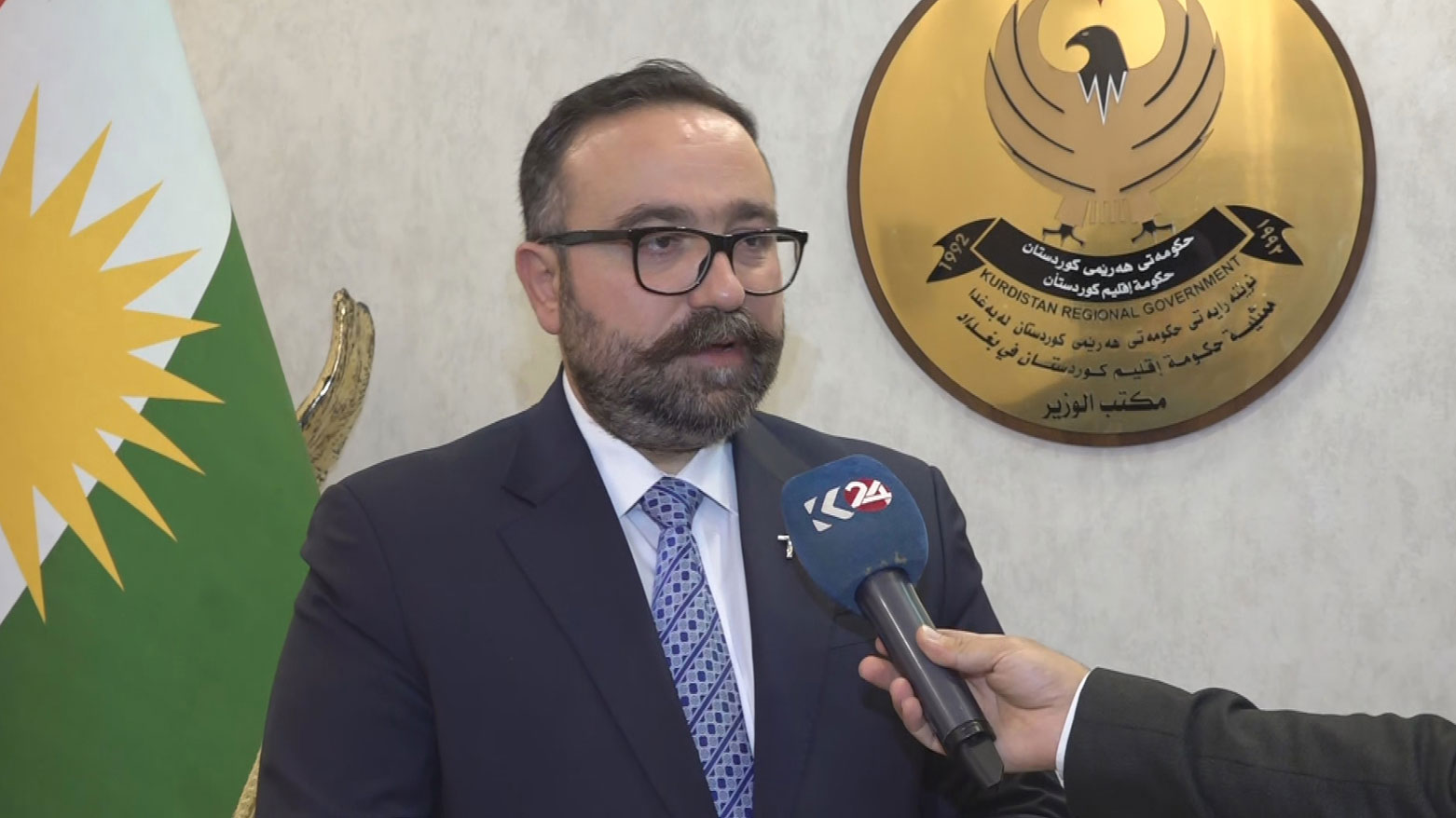Kurdistan Region Pushes for Key Role in Iraq's Development Road Project
The KRG delegation, led by Minister of Transport and Communications Ano Jawhar, is pushing for its proposed route for the Development Road, arguing it's shorter, safer, and indispensable for reaching Türkiye, amid debates over a politically-motivated alternative.

ERBIL (Kurdistan24) — A high-level Kurdistan Regional Government delegation traveled to Baghdad on Wednesday to reassert the region's indispensable role in Iraq's strategic "Development Road" project, arguing that the route proposed through its territory is shorter, less costly, and more secure than alternatives. The meetings represent a critical push by Erbil to ensure the multi-billion-dollar trade corridor, designed to link Asia with Europe, is implemented in a way that maximizes economic benefits for all of Iraq's diverse communities.
The KRG delegation, led by Minister of Transport and Communications Ano Jawhar, met with Iraqi Deputy Prime Minister and Minister of Planning Mohammed Ali Tamim, Minister of Transportation Razzaq al-Saadawi, and other relevant officials.
In an interview with Kurdistan24 following the discussions, Minister Jawhar described the meetings as positive, stating that, upon the recommendation of Prime Minister Masrour Barzani, the KRG's official view was strongly emphasized. He clarified the technical and logistical superiority of the Kurdistan route, which would run east of the Tigris River.
"The delegation clarified that from a technical standpoint, the route through the Kurdistan Region... is shorter and less costly," Minister Jawhar said. "It is also more secure compared to the desert route that other parties have proposed, which they want to pass through the west of the Tigris River."
The minister stressed that the KRG's involvement is a practical necessity, stating unequivocally that "the 'Development Road' project cannot be implemented without the Kurdistan Region, because if it does not pass through the Region, it will have no other way to reach Türkiye."
He explained that Erbil's vision is not for a minimal transit path, but for a route that actively revitalizes areas deeply affected by conflict.
"Instead of having it pass through Kurdistan for only 10 or 12 kilometers, we want it to pass through the Nineveh Plain, so that the various components in that area who have suffered greatly under ISIS can benefit from the project, and then it would enter the Semel and Duhok areas and proceed towards Zakho," he added.
The KRG has agreed to submit a detailed report to the Baghdad committee outlining these benefits and has requested a site visit.
This push in Baghdad is the latest development in long-standing discussions where the KRG has consistently advocated for a more economically viable and inclusive route.
In May 2024, a significant step was taken when the KRG's Ministry of Transport and Communication signed a memorandum of understanding with the Director General of Iraqi Railways and an Italian firm for the project.
This agreement endorsed the eastern Tigris route, which officials highlighted would shorten the distance by more than 32 kilometers.
At the time, Youssef al-Kaabi, Director General of Iraqi Railways, confirmed the project would stretch from al-Faw port to north of Mosul and then through the Kurdistan Region to the Turkish border, stating a desire to "connect the Kurdistan Region and Kirkuk with the national grid and railway."
Prime Minister Masrour Barzani has been a vocal proponent of this vision, arguing that building a strong economic infrastructure is fundamental to stability.
During a symposium in May 2024, he directly addressed the debate over the project's path. He explained that the KRG's proposal, running through major cities like Zakho, Duhok, Erbil, and Kirkuk, was designed so that "all communities, including Kurds, Turkmen, Christians, Shiites, and Sunnis, would benefit from it." He questioned the rationale behind the alternative western route, which would traverse a sparsely populated area. "If the issue is economic, which is less expensive, let them come and study the benefits of the project," the Prime Minister stated. "If it is not economic, then your interpretation is correct, so the issue must be political."
The Development Road is a cornerstone of Iraqi Prime Minister Mohammed Shia al-Sudani’s agenda, who has hailed it as one of the most important infrastructure initiatives in the Middle East, serving as a strategic corridor to unite regional economies. The 1,200-kilometer network of railways and highways is intended to connect Iraq’s Grand Faw Port to Türkiye, creating a new economic lifeline between Asia and Europe.
While Baghdad champions the project's grand regional vision, the debate over its internal route has revealed a critical fault line, pitting Erbil’s technical and economic arguments against what Prime Minister Barzani suggested could be a politically motivated plan that is less useful for the people of Iraq.
